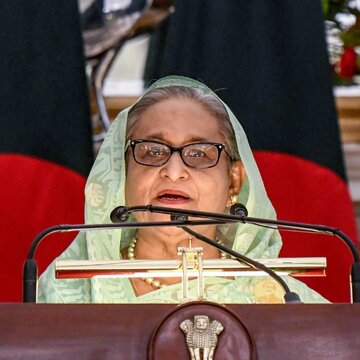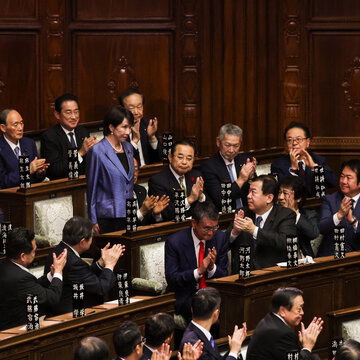The '27th Constitutional Amendment Bill' was approved by the Pakistani parliament on Thursday. This decision has resulted in the army chief gaining more power, while the Supreme Court's authority has been curtailed. Critics of the government have labeled this move as detrimental to Pakistan's democracy. Compounding the situation, two judges of the Supreme Court, Mansoor Ali Shah and Athar Minallah, have resigned in protest against the bill. They have already submitted their resignations to the President of Pakistan.
As a result of the 27th Amendment to the Constitution, a 'Federal Constitutional Court' (FCC) will be established above the Supreme Court. The Chief Justice of this court will be appointed by the President of Pakistan, based on a nomination from the Prime Minister of Pakistan. The other judges of the court will also be appointed by the government.
ALSO READ | Sheikh Hasina slams Yunus, accuses interim Govt of 'sponsoring extremists' and anti-India rhetoric
In his five-page resignation letter, Mansoor Ali Shah claimed that the amendment to the constitution is an attack on the constitutional system, which has crippled the independence of the judiciary and is reducing the power of the Supreme Court.
He said that he cannot work in a court that is deprived of constitutional authority or is being kept away from its constitutional role. On the other hand, Mansoor Ali Shah wrote, “dismantles the Supreme Court of Pakistan, subjugates the judiciary to executive control, and strikes at the very heart of our constitutional democracy.”
ALSO READ | 'Why are you people so apprehensive?' Supreme Court questions SIR petitioners
It is important to highlight that, due to this amendment, the Federal Communications Commission (FCC) will have ultimate authority over internal matters of various provincial governments.
Consequently, while the Supreme Court of Pakistan will still serve as the highest court for criminal and civil cases, the decisions made by the FCC will be binding on all other courts.
Additionally, the President's ability to seek advice from the Supreme Court regarding fundamental rights, appeals to the High Court on constitutional matters, and writ petitions under Article 199 (except family and rent-related cases) will now be directed to the FCC.
Not only will their opinions no longer be considered in the transfer of High Court judges, but if any judge protests their transfer, they will be asked to resign.
Previously, the Supreme Court acted as one of the 'checks' on the government's monopoly on power. There are concerns within Pakistan that this bill is curtailing the Supreme Court's authority. In this broader context, the resignation of two judges from the Supreme Court of Pakistan signals an impending crisis within the country's judiciary, according to political circles.










